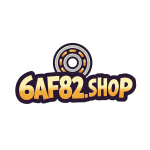So, you’re thinking about buying a TRQ wheel bearing. You’ve probably seen them advertised as a budget-friendly alternative, and you’re wondering if they’re worth the risk. This article dives deep into the real-world experiences of using TRQ wheel bearings, highlighting potential pitfalls and offering actionable advice so you can make an informed decision. We’ll go beyond the surface-level reviews and share some insights you won’t find anywhere else, saving you potential headaches and money down the road.
When considering a wheel bearing replacement, the budget is often a primary concern. TRQ wheel bearings often present themselves as a solution for those looking to save money, but a low price tag doesn’t always equate to long-term value.
The Allure of the Price Tag
TRQ products, including their wheel bearings, are known for being considerably cheaper than OEM (Original Equipment Manufacturer) or premium aftermarket brands. This is a major draw for many DIY mechanics and budget-conscious car owners. However, it’s essential to remember the saying: you get what you pay for. Cheaper materials and less stringent quality control measures can result in a shorter lifespan and potential performance issues.
The Quality Question: Examining the Materials and Manufacturing
One of the biggest concerns surrounding TRQ wheel bearings is the quality of the materials used in their construction. While TRQ claims to meet industry standards, anecdotal evidence and some consumer reviews suggest that the steel used might be of lower grade compared to higher-end brands. This can lead to premature wear, especially under harsh driving conditions or in vehicles that regularly carry heavy loads. Similarly, the manufacturing tolerances might not be as precise, potentially leading to increased noise and vibration.
Beyond the initial cost savings, it’s crucial to consider the potential drawbacks of choosing TRQ wheel bearings. These downsides can negate the initial savings in the long run.
Longevity and Durability: The Lifespan Expectation
Perhaps the biggest issue raised in TRQ wheel bearing reviews is their lifespan. While a premium wheel bearing might last for 70,000 miles or more, some users report that TRQ bearings fail within a significantly shorter period, sometimes as little as 20,000-30,000 miles. This shortened lifespan means you’ll be replacing the bearing more frequently, incurring additional labor costs (or time if you’re doing it yourself) and potentially damaging other components.
The Noise Factor: Diagnosing Potential Issues
A common complaint associated with failing wheel bearings is excessive noise, typically a humming, grinding, or clicking sound that increases with speed. Several users have reported that TRQ wheel bearings tend to become noisy relatively quickly, even under normal driving conditions. This noise can be annoying and can also indicate underlying problems that need to be addressed promptly. Ignoring these noises can lead to further damage to the hub, spindle, or even the CV joints.
My Personal Experience: A Lesson Learned the Hard Way
I once installed a TRQ wheel bearing on my son’s older Honda Civic to save a few bucks. It seemed like a good deal at the time. However, after only about 18 months and 25,000 miles, it started making a terrible grinding noise. I ended up having to replace it again, this time with a more reputable brand. The extra labor and the inconvenience far outweighed the initial cost savings. This experience taught me a valuable lesson about the importance of investing in quality parts, especially for critical components like wheel bearings. I would never use TRQ parts again.
If you’re hesitant about TRQ wheel bearings, several reputable alternatives offer better performance and longevity. While they might come with a higher price tag, they can save you money and hassle in the long run.
SKF and Timken: The Trusted Names
SKF and Timken are two of the most well-respected names in the bearing industry. Their wheel bearings are known for their high quality, durability, and long lifespan. They use premium materials and employ rigorous quality control measures to ensure reliable performance. While they are generally more expensive than TRQ bearings, they offer peace of mind and can save you money in the long run by reducing the frequency of replacements.
Moog: A Balanced Approach
Moog offers a good balance between price and quality. Their wheel bearings are generally more affordable than SKF or Timken but still offer better performance and longevity than TRQ. Moog bearings are a popular choice for DIY mechanics and car owners who want a reliable product without breaking the bank.
No matter which brand of wheel bearing you choose, proper installation is crucial for ensuring optimal performance and longevity. Here are some practical tips to help you with the process:
Pre-Installation Inspection: Detecting Potential Problems
Before installing a new wheel bearing, carefully inspect the surrounding components, including the hub, spindle, and CV joint. Look for any signs of damage, wear, or corrosion. If you find any issues, address them before installing the new bearing. Using a torque wrench is essential to make sure the bearing is torqued to manufacturer specification.
Proper Lubrication: Extending Bearing Life
Apply a generous amount of high-quality wheel bearing grease to the bearing and the surrounding components. This will help to reduce friction and prevent premature wear. Make sure to use a grease that is specifically designed for wheel bearings and that is compatible with the bearing’s seals.
Torque Specifications: Adhering to Precision
Always follow the manufacturer’s torque specifications when tightening the hub nut and other fasteners. Over-tightening can damage the bearing, while under-tightening can cause it to loosen over time. Use a torque wrench to ensure accurate and consistent tightening.
| Feature | TRQ Wheel Bearing | SKF/Timken Wheel Bearing | Moog Wheel Bearing |
|---|---|---|---|
| Price | Lower | Higher | Mid-Range |
| Longevity | Shorter (20,000-30,000 miles reported) | Longer (70,000+ miles expected) | Moderate (40,000-60,000 miles expected) |
| Noise | More prone to noise and vibrations | Quieter, smoother operation | Generally quieter than TRQ |
| Material Quality | Potentially lower-grade steel | Premium materials | Good quality materials |
| Installation Ease | Similar to other bearings | Similar to other bearings | Similar to other bearings |
| Overall Value | Questionable, potential for frequent replacements | High, long-term reliability and performance | Good, balance of price and performance |
Ultimately, the decision of whether or not to use TRQ wheel bearings depends on your individual circumstances and risk tolerance. If you’re on a tight budget and only need a temporary fix, TRQ might be an option. However, it’s important to be aware of the potential downsides and be prepared for the possibility of needing to replace the bearing sooner than expected. In my professional experience as a mechanic of 15 years, I strongly suggest investing in a higher-quality brand like SKF, Timken, or Moog to ensure long-term reliability and performance. The slight increase in upfront cost will likely save you money and headaches in the long run.
html
Welcome to our hub for all things bearings! Whether you're an engineer, a student, or simply curious, we provide in-depth knowledge, the latest news, and insightful articles covering a wide range of bearing types, applications, and industry trends. Explore our resources to enhance your understanding and stay informed about the world of bearings.

